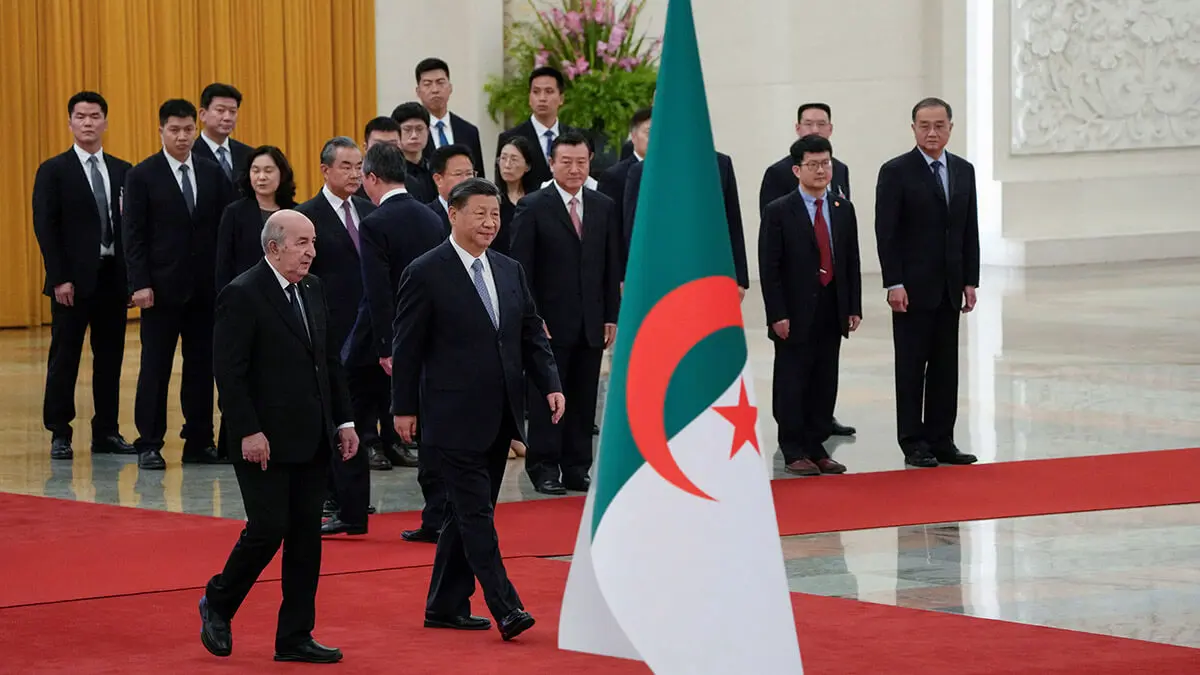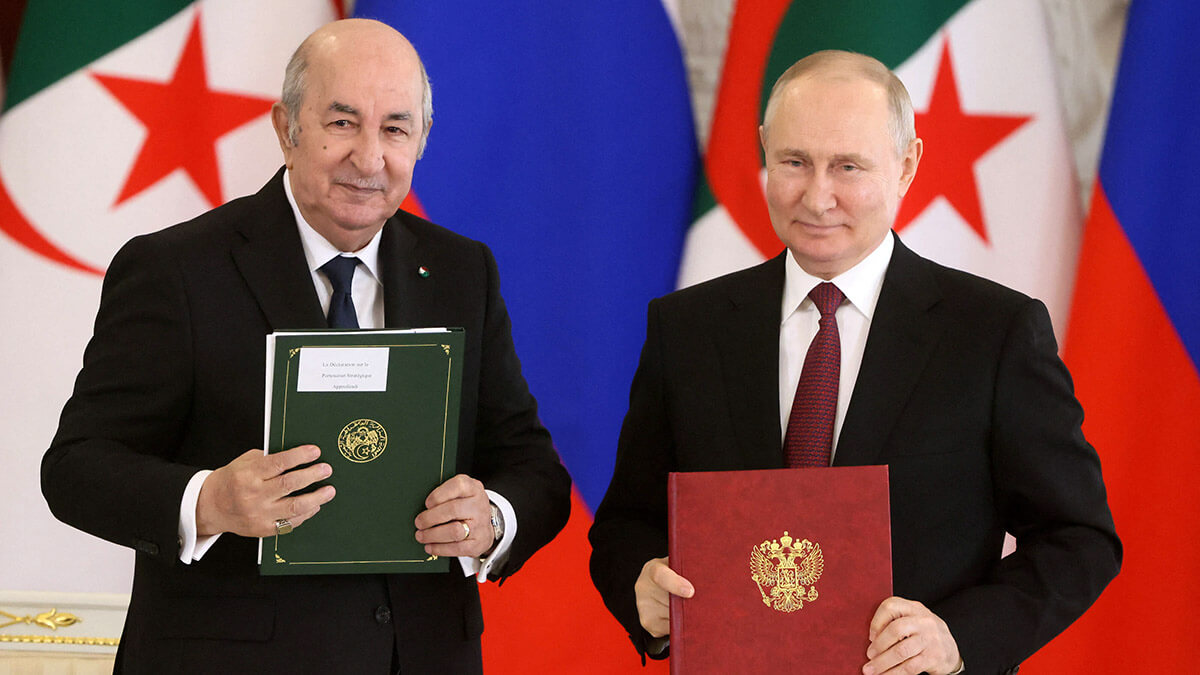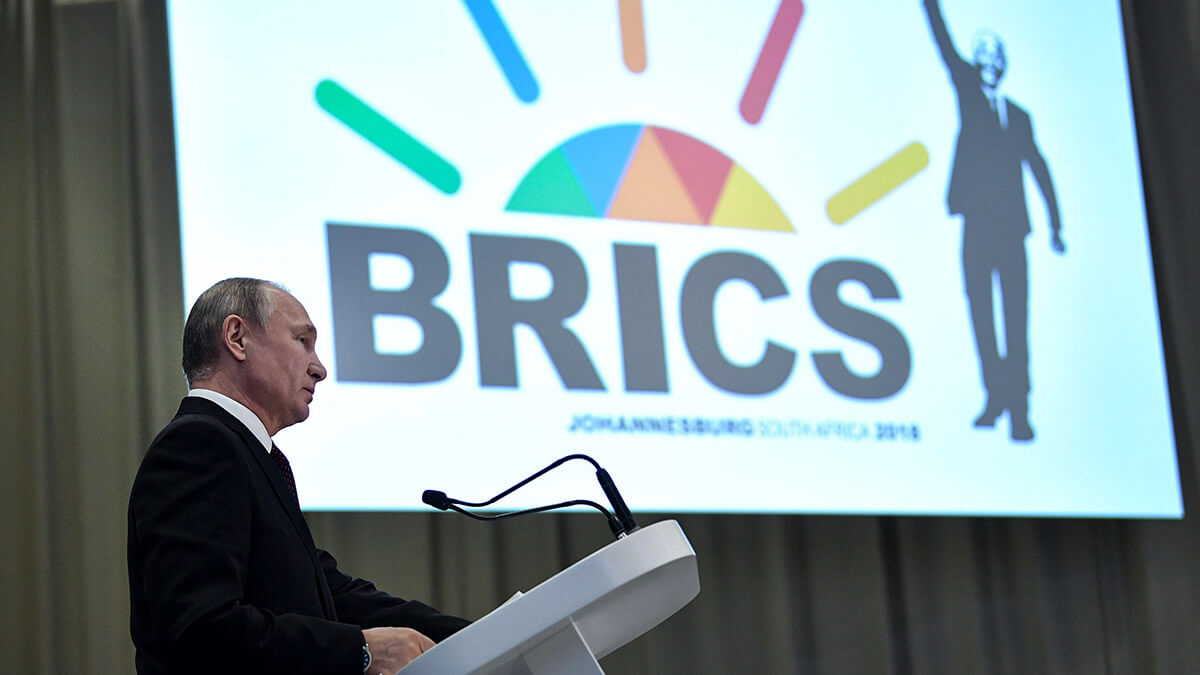Abdelmadjid Tebboune visits China to discuss his economic partnership with Beijing and relaunch applications for BRICS membership

Algerian President Abdelmadjid Tebboune travelled to Beijing for a five-day State visit. Accompanied by a large delegation including ministers, senior officials and business leaders who are members of the Algerian Economic Renewal Council, the purpose of the visit is to discuss international issues, Chinese investment and Algeria's membership of the BRICS alliance.
According to Al Arab news, the visit was announced just a few days before his departure, in a brief statement saying that “President Abdelmadjid Tebboune is undertaking a state visit to the People's Republic of China, at the invitation of the President of the People's Republic of China, Xi Jinping, and this comes within the framework of strengthening the strong and deep-rooted relations and reinforcing economic cooperation between the two friendly countries of Algeria and China.”
According to the Agence Ecofin news agency, Algiers enjoys a solid economic relationship with Beijing, overtaking France as the leading supplier to the resource-rich North African country. Trade between the two countries reached around 7.3 billion dollars in 2021, according to statistics published by Algerian customs.

The last visit to China by an Algerian president was in 2006, during Abdelaziz Bouteflika's term of office. Since 2014, Algeria has been linked to China by a comprehensive strategic partnership agreement. In addition, a cooperation plan extending to 2026 and covering several sectors including agriculture, energy, health, science and the space industry was signed in 2022.
According to Al Arab news, this plan reflects Algeria's ambition to develop its infrastructure, while China is exploiting it to find new outlets for the flow of its goods and access to mineral and energy resources as part of the “One Belt, One Road” project. In recent months, Chinese companies have been awarded several projects, including an iron mine in Tindouf, in south-western Algeria, and the development of the Béjaïa zinc mine in the north.
The project to complete the port of Hamdaniya near the capital is a key element in the partnership between the two countries. Comprising 23 quays and capable of handling 6.5 million containers and 25.7 million tonnes of goods annually, this project will be financed by both countries, on condition that it is operated by the Chinese Shanghai Ports Company. The port of Hamdaniya is a key asset in China's strategy to penetrate African markets, as it is linked to the African Unity Road.

Tebboune's visit to Beijing is therefore aimed at speeding up the implementation of these projects. It is likely that new agreements will be signed, particularly in the mining sector, as Algeria has several minerals such as gold and uranium, not to mention rare metals, which are highly coveted on a global scale. A discussion on the creation of a joint Algerian-Chinese business council was also announced during the visit, "to enable businessmen from both countries to discuss the implementation of fruitful and profitable partnership projects for both parties", according to the Algerian proposal. The Chinese and Algerian presidents are also expected to discuss the issue of the dollar's dominance in international trade transactions.
This visit comes around a month after Tebboune's visit to Moscow, which shows a clear Algerian tendency to give greater impetus to relations with the East, where partnership and investment opportunities are greater, raising questions among its traditional partners in Europe and the United States. During the visit, the Algerian President held talks with his Russian counterpart Vladimir Putin, and they signed a “declaration on a deeper strategic partnership” with a view to strengthening economic relations, particularly in the hydrocarbons and military sectors.
Algeria is counting on this visit to give it the last chance to accept its application to join the BRICS group, given China's weight within the alliance. Algiers made its application official in November 2022, in an international context marked by the war in Ukraine and the desire of China and Russia to create a counterweight to what they see as “Western hegemony”. At the end of 2022, former Chinese Foreign Minister Wang Yi declared that Beijing “welcomes” Algeria's interest in joining the BRICS group.

According to Observalgérie, websites are speculating that the Algerian application may be rejected. In fact, official sources have not yet commented on the matter, as Algeria's application has still not been examined. Senior BRICS officials have recently stated that the BRICS countries have not yet agreed on membership criteria. Responses to membership applications are expected to be discussed at the BRICS summit scheduled to take place in South Africa in August.
If Algeria's application is accepted, the country will only have “observer country” status. In a podcast broadcasted by the Qatari news channel Al-Jazeera last April, President Abdelmadjid Tebboune stated that Algeria “will initially be included as an observer country. As the indicators improve, we will become a full member of the BRICS”. He also pointed out that banking and investment in the BRICS will enable Algiers to strengthen its position not only economically, but also politically as a member of the Non-Aligned Movement.

However, the Turkish news agency Anadolu Agency reports that the move continues to provoke lively debate among Algerian experts. Some, like Abdelghani Ben Amara, an economist and lecturer at the University of Batna, believe that Algeria is driven by a political and geostrategic objective. Its status as an African and Mediterranean power, situated at a pivotal point between Asia and South America, could strengthen the position of the Algerian state on the world stage. For others, Algeria has little to gain from membership, as its trade balances with the five members are negative. In addition, the sea voyage of goods between Beijing and Algiers could penalise the national economy through the cost of transport.
In short, the main interest for Algeria is the diplomatic and political prestige it could gain if it were to join the BRICS. By also banking on the economic partnership and Chinese investment, Algiers is seeking to give a new boost to its national economy.









